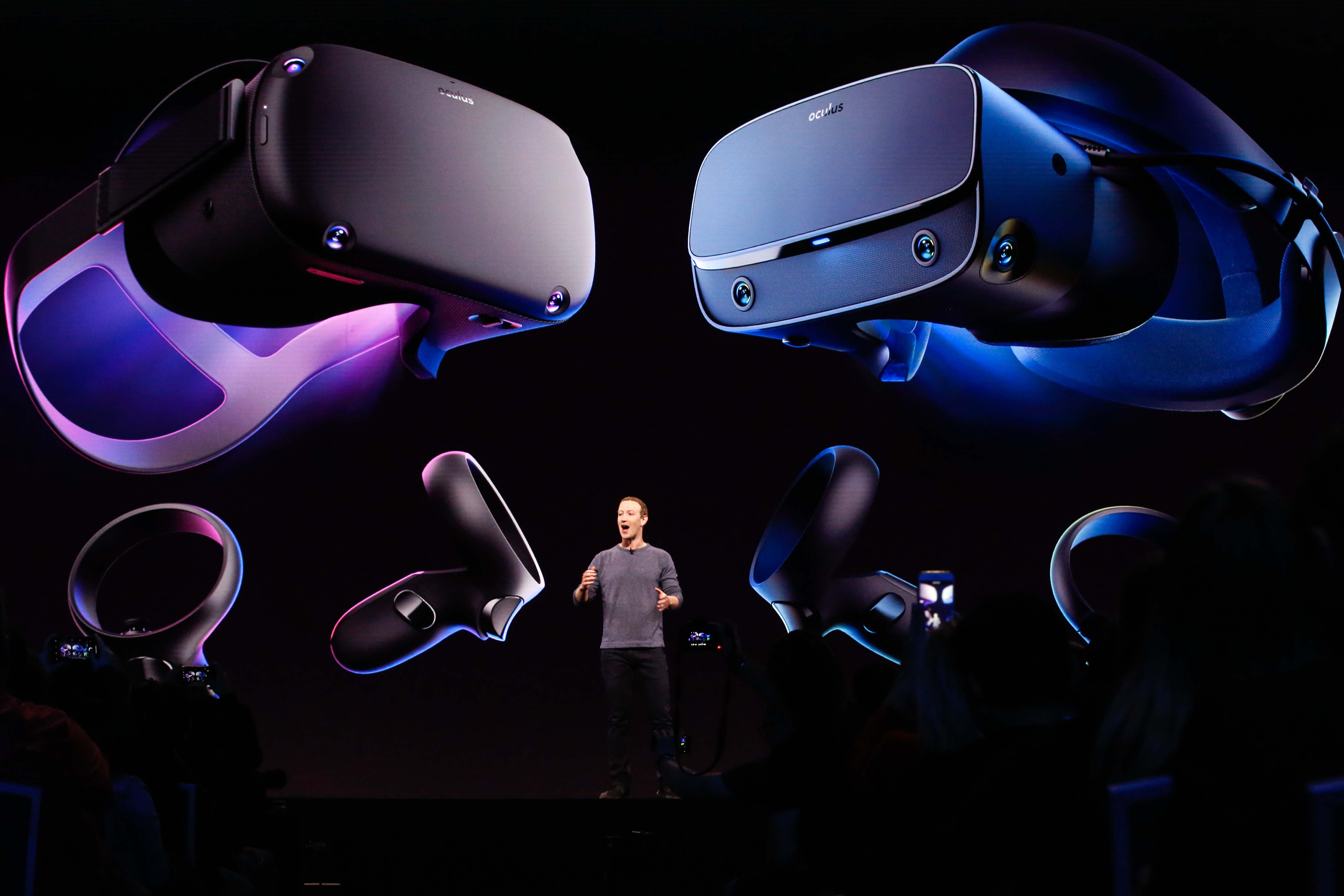Facebook brings ads to virtual reality headsets - even though Oculus founder said it would never happen
Oculus will not ‘flash ads at you’ and the company doesn’t ‘have to compromise on anything’, Palmer Luckey said when Facebook bought the company

Facebook is bringing adverts to its Oculus virtual reality headsets, seven years after the original founder said that it would never do so.
The social media giant claims that the reason it needs to include adverts is to “advance the consumer experience” and help developers generate revenue, and so is currently testing the addition of adverts in certain VR games, it said in a blog post.
Facebook has been continually pushing virtual reality as the future of both its own services and of technology in general, because it has the opportunity to make vast amounts of profit through the digital ‘metaverse’ where computer-generated goods can be bought and sold – much like in-app purchases in video games – with Facebook taking a cut.
Currently, however, Facebook is relatively bound by Apple and Google’s influence on its apps on mobile – as demonstrated by the controversy over Apple blocking its access to ad tracking features in iOS 14, and Facebook’s attacks on the smartphone manufacturer in response.
Facebook claims that the adverts will be “high-quality and relevant”, with the company gathering information about how users interacted with adverts such as clickthroughs or whether the user hid the ad.
“This is a new innovation in the advertising industry, and it’s still early days”, Facebook said, adding that it “excited by the opportunity to open up new revenue streams”.
This advertisement update is a considerable difference from the future sold to users by Palmer Luckey, the original founder of the Oculus headset before it was purchased by Facebook. Luckey claimed that Oculus would continue to “operate independently” and that the company was “not going to track you, flash ads at you, or do anything invasive” following the purchase.
“This acquisition/partnership gives us more control of our destiny, not less! We don’t have to compromise on anything”, Luckey continued, “I would never have done this deal if it meant changing our direction”.
Neither Luckey nor Facebook responded to a request for comment from The Independent before time of publication.
This is not the first time that Facebook has broken a promise made by Luckey. The founder also “guarantee[d] that you won’t need to log into your Facebook account every time you wanna use the Oculus Rift”, but Facebook announced that all new users will be required to sign up with their Facebook account if they are using an Oculus headset for the first time in October 2020.
Oculus Quest users have attempted to hack the virtual reality headset to separate it from its parent company, with Luckey himself matching a $5000 reward set by a Mozilla developer for any hacker able to “break free of FB’s anti-competitive, anti-privacy ecosystem”.
Join our commenting forum
Join thought-provoking conversations, follow other Independent readers and see their replies
Comments
Bookmark popover
Removed from bookmarks